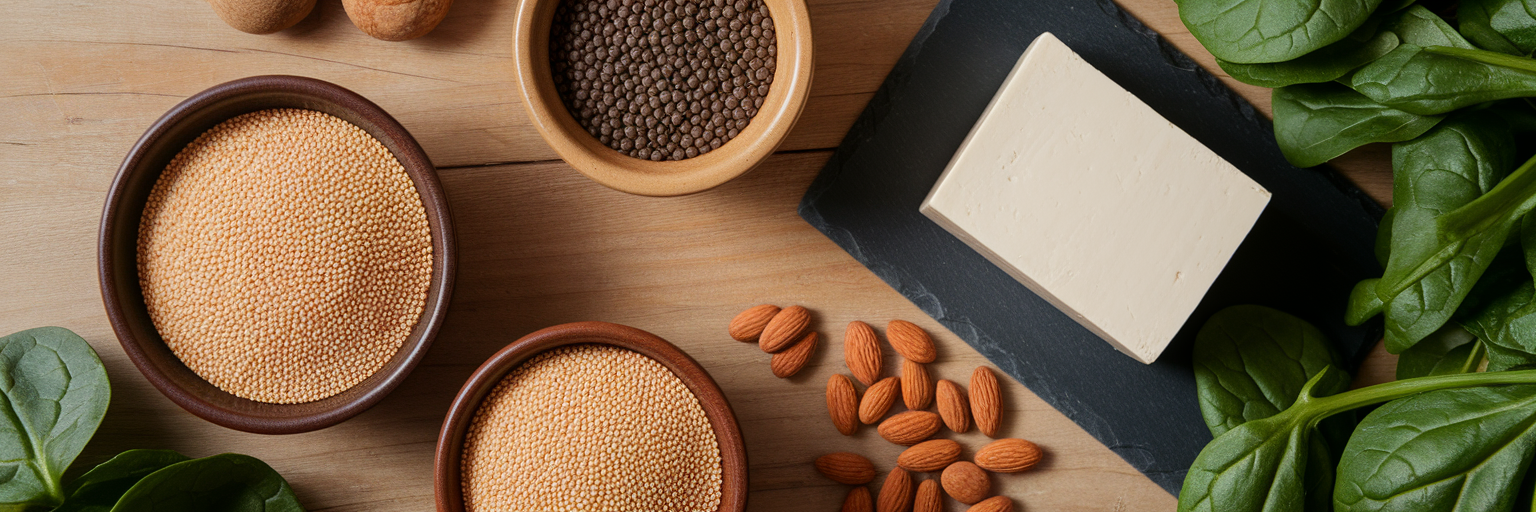Every workout, whether it involves lifting weights or running long distances, creates a demand for repair and growth that protein helps meet. Yet, many active individuals follow generic advice, leaving their results to chance. A one-size-fits-all approach to protein intake is ineffective because it overlooks the unique demands of your body and fitness goals.
Protein does more than just build muscle. It supports your immune system, helps you feel full and satisfied after meals, and provides the essential building blocks for countless bodily functions. When you see someone meticulously tracking their food, they are often trying to ensure they meet these needs. Generic recommendations fail to account for critical differences in body weight, activity level, and personal ambitions. This guide provides a clear, actionable way to calculate your protein intake, empowering you to take control of your nutrition and fuel your body effectively.
Matching Protein Intake to Your Fitness Ambitions
Once you understand why personalised intake is necessary, the next step is to align your protein consumption with your specific goals. The amount of protein required to maintain health is quite different from what is needed to build muscle or support fat loss. Your ambition dictates your nutritional strategy.
For those focused on muscle gain (hypertrophy), resistance training creates tiny micro-tears in muscle fibres. Protein provides the amino acids needed to repair this damage and build stronger, larger muscles. The recommended range for this goal is typically 1.6 to 2.0 grams of protein per kilogram of body weight. This ensures a steady supply of building blocks for growth.
When it comes to protein intake for weight loss, the focus shifts. A higher protein intake of 1.6 to 2.2 grams per kilogram helps preserve lean muscle mass while you are in a calorie deficit. We have all felt that nagging hunger when trying to eat less. Protein increases satiety, helping you feel fuller for longer and making it easier to stick to your plan. This is one of the most effective strategies for sustainable fat loss.
Endurance athletes and individuals engaged in general fitness also have elevated needs. An intake of 1.2 to 1.6 grams per kilogram supports muscle recovery and repairs exercise-induced damage. In contrast, a sedentary person only requires about 0.8 grams per kilogram for basic functions. This difference highlights why active bodies demand more fuel. Finding the right supplement is key, and for those looking to optimise their nutrition, exploring some of the best protein powders can provide a convenient and effective solution.
| Fitness Goal | Recommended Daily Protein Intake (per kg of body weight) | Primary Rationale |
|---|---|---|
| Muscle Gain (Hypertrophy) | 1.6 – 2.0 g | Provides amino acids to repair and build new muscle tissue after resistance training. |
| Weight Management / Fat Loss | 1.6 – 2.2 g | Preserves lean muscle mass during a calorie deficit and increases satiety to control hunger. |
| Endurance & General Fitness | 1.2 – 1.6 g | Supports muscle recovery, repairs exercise-induced damage, and aids energy metabolism. |
| Sedentary Maintenance | 0.8 g | Meets basic physiological needs for bodily functions, not optimised for athletic performance. |
Note: These recommendations are based on current sports nutrition research. Individuals should consider this a starting point and adjust based on their personal response and results.
A Simple Formula for Your Protein Target

With the right target range in mind, you can now determine your specific daily goal. Forget complicated calculators and confusing charts. The process is straightforward and gives you a personalised starting point for your nutritional plan. Here is how to calculate protein intake with a simple formula:
Daily Protein Intake (grams) = Your Body Weight (in kilograms) × Your Activity Factor
First, if you know your weight in pounds, convert it to kilograms by dividing by 2.2. Next, identify your activity factor from the list below. This factor represents the protein demands associated with your fitness goal, as we discussed earlier.
- Sedentary or Light Activity: 0.8–1.2 g/kg
- General Fitness & Endurance: 1.2–1.6 g/kg
- Muscle Gain: 1.6–2.0 g/kg
- Weight Loss (while active): 1.6–2.2 g/kg
Let’s walk through an example. Imagine a person who weighs 70 kg and is focused on building muscle. They would choose an activity factor from the muscle gain range, perhaps starting with 1.8 g/kg.
Calculation: 70 kg × 1.8 g/kg = 126 grams of protein per day.
This number is your personalised target, not a rigid rule. Think of it as a guidepost. Pay attention to how your body responds. Are you recovering well from workouts? Do you feel energised? Adjust your intake as needed based on your progress and how you feel. For more tips on building a healthy lifestyle, our blog offers a wealth of information.
The Truth About Plant-Based Protein Sufficiency
A common question we hear is whether plant-based diets can truly support serious fitness goals. The myth that plant proteins are "incomplete" or inferior persists, but it is based on outdated information. Let's set the record straight: meeting your vegan protein requirements is not only possible but also highly effective for building strength and enhancing recovery.
The concern revolves around essential amino acids (EAAs), the building blocks of protein that our bodies cannot produce. While it is true that some plant sources are lower in certain EAAs than others, a varied plant-based diet easily provides all of them over the course of a day. The old idea of needing to meticulously combine specific proteins at every single meal has been largely dismissed by modern nutrition science. Your body maintains a pool of amino acids, so as long as you eat a variety of sources, you will have everything you need.
High-quality plant protein sources include:
- Complete Proteins: Quinoa, soy (tofu, tempeh, edamame), and buckwheat contain all nine essential amino acids.
- Legumes: Lentils, chickpeas, and black beans are protein powerhouses.
- Nuts and Seeds: Hemp seeds, chia seeds, and almonds offer protein along with healthy fats.
The effectiveness of plant-based protein for athletes is well-supported. In fact, research published in the journal Nutrients has shown that plant-based protein sources can support muscle maintenance and growth on par with animal sources when consumed in adequate amounts. The key is ensuring your total daily intake is sufficient to meet your goals. For a clean, effective, and delicious option to help you get there, our Chocolate Vegan Protein is designed to support your fitness goals without compromise.
Optimising Your Protein Consumption Throughout the Day

Once you have your daily protein target, the final piece of the puzzle is how to distribute it. Consuming your entire protein intake in one or two large meals is less effective than spreading it out. Your body can only use so much protein for muscle synthesis at one time. By distributing it across several meals, you provide a more consistent supply of amino acids for recovery and growth throughout the day.
A simple and effective strategy is to divide your daily target by the number of meals you typically eat. For example, if your goal is 120 grams of protein and you eat four meals, you would aim for approximately 30 grams of protein per meal. This approach also helps manage hunger and maintain stable energy levels.
While post-workout protein is beneficial, it is just one part of your overall daily strategy. The idea of a narrow "anabolic window" has been overstated. What matters most is hitting your total daily protein goal consistently.
Here are a few simple ways to incorporate protein into every meal:
- Add a scoop of protein powder to your morning oats or smoothie.
- Base your lunch around lentils, chickpeas, or tofu.
- Snack on a handful of almonds or pumpkin seeds.
- Include a serving of beans or quinoa with your dinner.
For delicious and simple ways to hit your protein goals, check out these 3 easy vegan protein recipes you'll actually crave. To discover clean, plant-based supplements that can help you meet your daily targets, browse our full collection of products.



